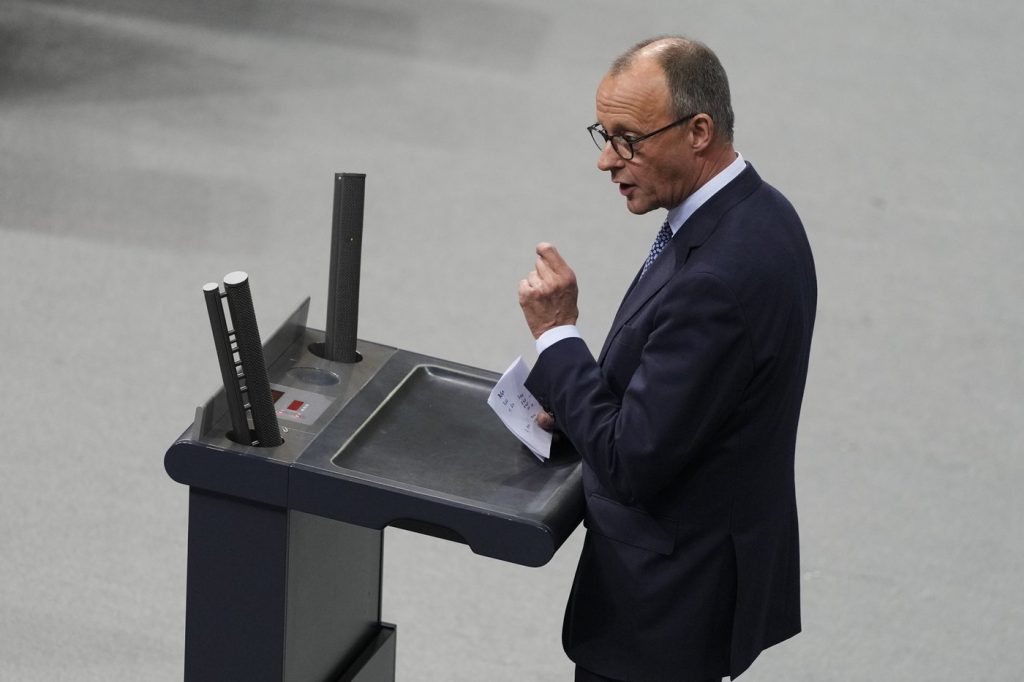BERLIN (AP) - Germany's parliament is scheduled to vote on an opposition bill aimed at imposing stricter migration rules, which could potentially mark the first piece of legislation to pass with the backing of the far-right party, the Alternative for Germany (AfD). This situation has ignited a debate regarding the stance of Friedrich Merz, the opposition leader, in the context of the upcoming elections on February 23, which is set against the backdrop of rising tensions following a deadly knife attack attributed to a rejected asylum-seeker last week.
Merz has made calls for a more restrictive migration policy central to his campaign, prompting concerns from his political opponents regarding his commitment to preserving a unified front against far-right ideologies. The move has led to widespread protests, with opponents questioning whether Merz is compromising the mainstream political consensus established to guard against the AfD's influence. Despite the critiques, Merz maintains that his positions remain unchanged and that he will not collaborate with the far-right party.
Recently, Merz tabled a nonbinding motion urging the German government to implement more stringent measures at its borders, emphasizing the need for urgent decisions regardless of the political affiliations of those who support them. This motion narrowly passed with the support of the AfD, resulting in a rare public criticism from former Chancellor Angela Merkel, who previously led Merz's party. The current proposal, which is set for a vote on Friday, addresses several key changes, including eliminating family reunification for migrants who have not received full asylum status and enhancing federal police powers to execute deportations.
While the center-left governing coalition has expressed its intent to reject the so-called "influx limitation bill," it finds unexpected support from various opposition parties, including the AfD. The outcome of the vote, however, remains uncertain, with the bill needing additional approval from Germany's upper house, which represents the 16 state governments, making its long-term viability questionable.
The growing political divide appears to impact the potential for future coalitions, particularly as Merz's center-right Union bloc leads with approximately 30% support in polls. In contrast, the AfD holds around 20%, while the ruling Social Democrats and the Greens lag behind. The center-left parties have accused Merz of undermining a political consensus that has aimed to marginalize the AfD since its entry into parliament in 2017, which was a direct consequence of the migration policies pursued by Merkel's administration in previous years.
Chancellor Olaf Scholz has cast doubt on Merz's integrity, suggesting that he could no longer be trusted not to ally with the AfD in forming a government. This allegation has been vehemently denied by Merz, who asserts that he continues to seek majorities within the political center. The center-left parties have countered his claims, emphasizing that Merz's hardline stance on migration leaves little room for potential compromises, effectively isolating him from centrist coalitions.
As the parliamentary landscape evolves with these new dynamics, the ongoing migration debate not only highlights the challenges faced by Germany's political parties but also reflects broader European trends regarding far-right populism and migration policy. The upcoming vote and its implications will be pivotal as Germany approaches its elections, shaping the future political landscape and the discourse surrounding immigration in the country.










